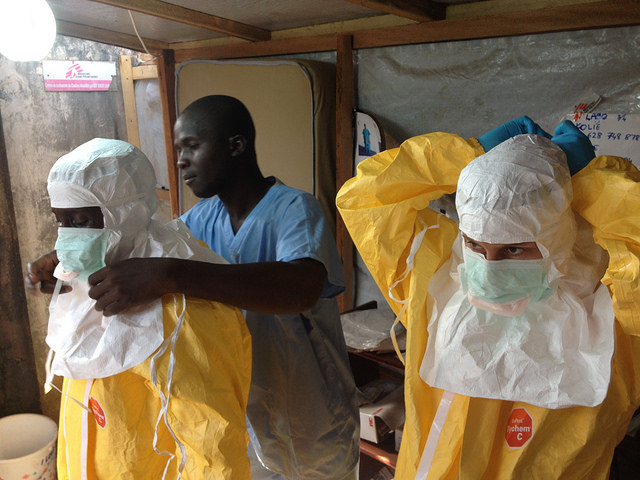The lethal disease Ebola has put parts of West Africa in a state of emergency and stoked concerns in America and the rest of the world. The spread of Ebola has been linked to deforestation, the consumption of bush meat, and population shifts to urban areas, all of which are consequences or causes of climate change. The world could be facing constant regional health crises, or even a global pandemic, as the effects of climate change are felt more strongly.
The deaths from Ebola are in fact low in comparison with cholera and malaria. Cholera claims as many as 120,000 deaths a year, and malaria may have killed 627,000 people in 2012, mainly African children. As one example of the impact that climate change may have on these diseases, cholera and malaria outbreaks have both been shown to increase following El Niño events, which research has begun to link to rising CO2 levels. Chikungunya, a disease causing severe joint pain, has spread to the Western Hemisphere from Asia and Africa. Warming has pushed the range of the mosquitoes that carry it further and further northwards. These are only some of the many diseases which may increase in frequency thanks to climate change. Chronic health conditions may also be exacerbated. The Environmental Protection Agency concludes that ground-level ozone and fine particulate matter increase respiratory conditions such as asthma, and that these will only increase as temperatures rise and weather patterns shift.
As we face medical and health issues with a strong connection to climate change, how should we cope with the increase in the spread of these diseases? Should we look to handle them separately from climate change, or address the underlying environmental issues that further infectious diseases? What might be the impact on public policy, especially in wealthy nations that can expect to suffer less than developing ones? Leave your thoughts below as we explore this topic.


